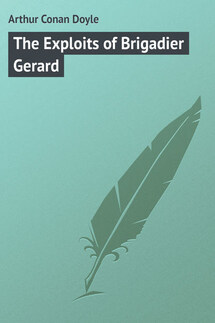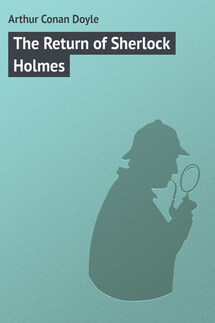Through the Magic Door - страница 7
The portrait of Louis with his astuteness, his cruelty, his superstition and his cowardice is followed closely from Comines, and is the more effective when set up against his bluff and war-like rival. It is not often that historical characters work out in their actual physique exactly as one would picture them to be, but in the High Church of Innsbruck I have seen effigies of Louis and Charles which might have walked from the very pages of Scott-Louis, thin, ascetic, varminty; and Charles with the head of a prize-fighter. It is hard on us when a portrait upsets all our preconceived ideas, when, for example, we see in the National Portrait Gallery a man with a noble, olive-tinted, poetic face, and with a start read beneath it that it is the wicked Judge Jeffreys. Occasionally, however, as at Innsbruck, we are absolutely satisfied. I have before me on the mantelpiece yonder a portrait of a painting which represents Queen Mary's Bothwell. Take it down and look at it. Mark the big head, fit to conceive large schemes; the strong animal face, made to captivate a sensitive, feminine woman; the brutally forceful features – the mouth with a suggestion of wild boars' tusks behind it, the beard which could bristle with fury: the whole man and his life-history are revealed in that picture. I wonder if Scott had ever seen the original which hangs at the Hepburn family seat?
Personally, I have always had a very high opinion of a novel which the critics have used somewhat harshly, and which came almost the last from his tired pen. I mean "Count Robert of Paris." I am convinced that if it had been the first, instead of the last, of the series it would have attracted as much attention as "Waverley." I can understand the state of mind of the expert, who cried out in mingled admiration and despair: "I have studied the conditions of Byzantine Society all my life, and here comes a Scotch lawyer who makes the whole thing clear to me in a flash!" Many men could draw with more or less success Norman England, or mediaeval France, but to reconstruct a whole dead civilization in so plausible a way, with such dignity and such minuteness of detail, is, I should think, a most wonderful tour de force. His failing health showed itself before the end of the novel, but had the latter half equalled the first, and contained scenes of such humour as Anna Comnena reading aloud her father's exploits, or of such majesty as the account of the muster of the Crusaders upon the shores of the Bosphorus, then the book could not have been gainsaid its rightful place in the very front rank of the novels.
I would that he had carried on his narrative, and given us a glimpse of the actual progress of the First Crusade. What an incident! Was ever anything in the world's history like it? It had what historical incidents seldom have, a definite beginning, middle and end, from the half-crazed preaching of Peter down to the Fall of Jerusalem. Those leaders! It would take a second Homer to do them justice. Godfrey the perfect soldier and leader, Bohemund the unscrupulous and formidable, Tancred the ideal knight errant, Robert of Normandy the half-mad hero! Here is material so rich that one feels one is not worthy to handle it. What richest imagination could ever evolve anything more marvellous and thrilling than the actual historical facts?









